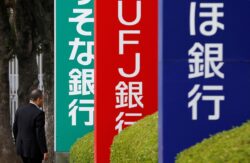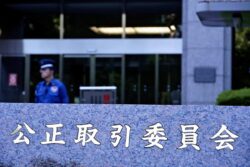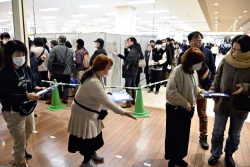Nissan President Uchida Facing Hard Time on 5 Years After Taking Office; Future of Nissan Uncertain
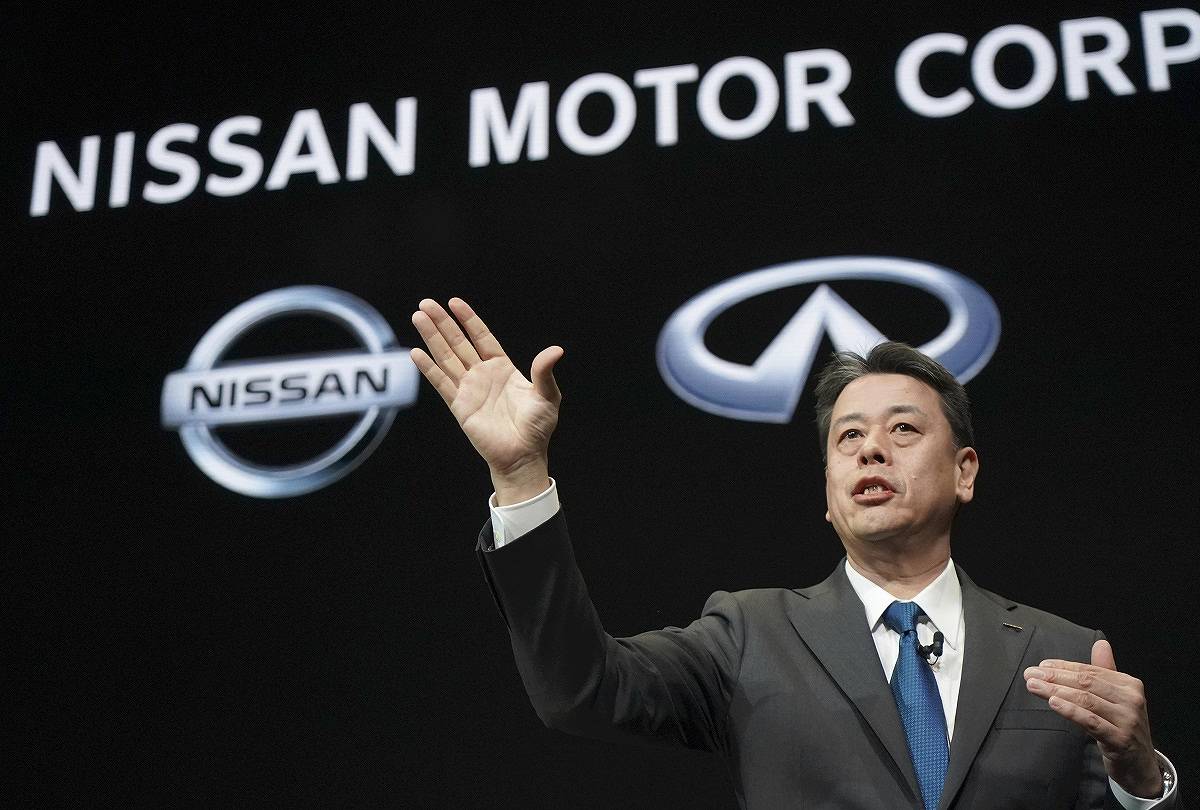
Nissan Motor Co. President Makoto Uchida speaks at a press conference in December 2019.
17:59 JST, December 3, 2024
Five years have passed since Makoto Uchida became president of Nissan Motor Co. The company has been forced to carry out major restructuring over those five years, as its share price has dropped nearly 50%. Among the difficulties the company continues to face is a decline in sales due to a failure to launch models that appeal to customers. Nissan is also dealing with activist shareholders.
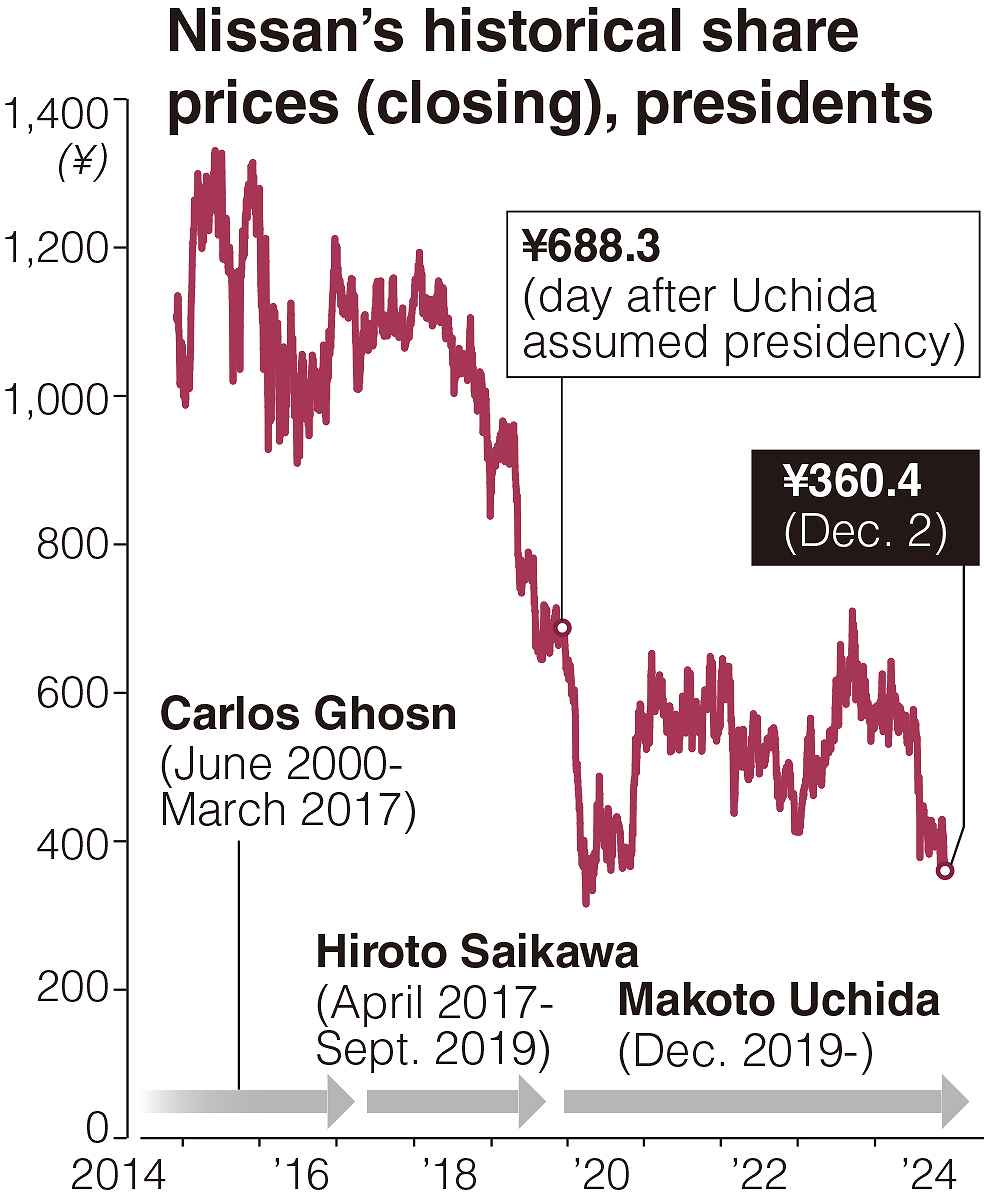
Rebuilding the company remains out of reach.
“We pushed ahead with a plan that had many hurdles, and our business performance declined rapidly. We created a culture where people were forced to say that they could do things that they could not,” Uchida said at his inaugural press conference as president in December 2019. He emphasized that the company had broken away from the culture created by former Nissan President Hiroto Saikawa and former Nissan Chairman Carlos Ghosn, who represent the past 20 years of leadership at Nissan. Ghosn, who was accused of criminal wrongdoing, jumped bail and fled to Lebanon in 2019.
However, Nissan’s consolidated financial results for the year ended March 2020 showed a loss of nearly ¥700 billion. The company also recorded a net loss of about ¥450 billion for the year ended March 2021 due in part to the COVID-19 pandemic.
The company’s performance seemed to have recovered when it marked a net profit of ¥400 billion for the year ended March 2024.
However, it reported only ¥19.2 billion in net profit last month in its midterm consolidated financial report for the first half of the fiscal year ending in September. That is a 90% decrease compared to the same period last year.
When asked about the reasons for the decline at a press conference, Uchida said, “In hindsight, the sales plan was too ambitious.”
The company’s global sales have fallen to 3.4 million units from about 5 million units at the start of Uchida’s tenure.
A senior official of a major bank said, “Nothing has changed [at Nissan] in the last five years.”
The opinions of market watchers are also harsh. Nissan’s stock price closed at ¥360 on Monday, marking a fall of nearly 50% since Uchida took up the post. In contrast, Toyota Motor Corp.’s shares rose by 70% over the same period.
Reduced production
According to a senior Nissan official, the cause of Nissan’s current predicament is that “there are no models that can sell.” The company has been unable to launch hybrid vehicles in the United States, where the cars are popular as an alternative to electric vehicles.
Nissan has also been squeezed by the aggressive tactics of Chinese car companies, which sell their models at low prices in China and Europe. Nissan has fallen into a vicious cycle of increasing sales incentives at dealerships in order to reduce its inventory.
In November, Nissan said that it would cut about 9,000 jobs worldwide as an emergency measure. It will also reduce its production capacity by 20% to 4 million units.
In addition to consolidating some of its production bases in Thailand, Nissan has cut production in the United States by about 20% compared to last year. Sales in Europe have also fallen sharply. The company decided to cut production at a plant in Britain by about 20%.
Some have pointed to a lack of transparency in the company’s operations.
Due to a deep-rooted corporate culture bred during the long period led by Ghosn, in which people wait for instructions from top officials, employees still cannot express their opinions to the president, a senior Nissan official said.
Nissan plans to revamp its management structure by spring.
According to a source close to Nissan, moves are underway to find a successor from the next generation, but that is proving difficult.
There are increasing concerns about the company’s immediate future. Nissan’s half-yearly report published in November revealed that an investment fund established by a former Murakami Fund employee had taken a large stake in Nissan. This may hamper Nissan’s efforts to form a partnership with Honda Motor Co.
At an extraordinary general meeting of shareholders held in February 2020 shortly after his appointment, Uchida said that if he fails to improve Nissan’s earnings, “Please fire me.”
Uchida now needs to take steps to regain the trust of the shareholders, but there is not much time left for him.
Top Articles in Business
-

Japan, Italy to Boost LNG Cooperation; Aimed at Diversifying Japan’s LNG Sources
-

Honda to Launch New Electric Motorbike in Vietnam
-

Asics Opens Factory for Onitsuka Tiger Brand in Western Japan
-

Japan’s ANA to Introduce Nationwide Logistics Service Using Drones, Will Be Used to Deliver Supplies in Remote Areas
-

JR Tokai, Shizuoka Pref. Agree on Water Resources for Maglev Train Construction
JN ACCESS RANKING
-

Univ. in Japan, Tokyo-Based Startup to Develop Satellite for Disaster Prevention Measures, Bears
-

JAL, ANA Cancel Flights During 3-day Holiday Weekend due to Blizzard
-

China Confirmed to Be Operating Drilling Vessel Near Japan-China Median Line
-

China Eyes Rare Earth Foothold in Malaysia to Maintain Dominance, Counter Japan, U.S.
-

Japan Institute to Use Domestic Commercial Optical Lattice Clock to Set Japan Standard Time



